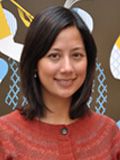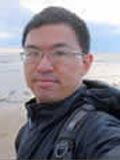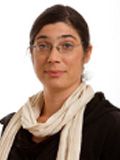
Tansen Sen is Associate Professor of Asian history and religions at Baruch College, The City University of New York. He received his MA from Peking University and PhD from the University of Pennsylvania. He has special scholarly interests in Buddhism, Sino-Indian relations, Indian Ocean trade, and Silk Road archeology. He has done extensive research in India, China, and Japan with grants from the American Institute of Indian Studies, the Japan Foundation, the American Philosophical Society, Chiang Ching-kuo Foundation, and the National Endowment for the Humanities.
He is the author of Buddhism, Diplomacy, and Trade: The Realignment of Sino-Indian Relations, 600-1400 (University of Hawai’i Press, 2003). He has co-edited China at the Crossroads: A Festschrift in Honor of Professor Victor H. Mair (special volume of Asia Major, vol. 19, issues 1-2, 2006) and guest edited a special issue of China Report (December 2007) on the connections between Kolkata (India) and China. He is currently working on a monograph that examines cross-cultural trade in Asia during the fourteenth and fifteenth centuries, a collaborative project on the Southern Silk Road, and creating a Web site to archive the history and experiences of the Chinese community in India.

Elizabeth Chandra studied Southeast Asia and Indonesian/Malay literature for her M.A. at Cornell University (2000) and Ph.D at the University of California—Berkeley (2006). Since 2007, she has lectured at Keio University, Tokyo. Her research interests include colonial literatures, comparative colonial histories, and the Chinese diaspora in Southeast Asia. She has written articles on the literary works produced by the Chinese of colonial Indonesia (Indonesia no. 92, Archipel no. 82), and on ethnic Chinese in Indonesia (Indonesia no. 94). As fellow at NSC, she examines Indonesian Chinese literary and journalistic publications before and after the Pacific War. She is also organising a joint IIAS-ISEAS international conference on Asia-Europe intellectual and cultural exchanges during the first half of the 20th century, to be held in Singapore on 7-8 December 2012.

Risha Lee studies South Asian art and architecture, focusing on the architectural history of southern India. She has interned in the Drawings and Prints Department at the Metropolitan Museum of Art and in the South and Southeast Asian Art Department at the Asian Art Museum of San Francisco. Her recently completed dissertation, “Constructing Community: Tamil Merchants in India and China, 850-1281,” studies the exchange of art, people, and ideas between India and China. She received her doctorate from Columbia University in 2012 and her BA from Harvard College in 2002, and has held teaching positions at Columbia University and the American University of Beirut.

Dr Albert Tzeng, an IIAS-ISEAS Postdoc Fellow, studied chemistry and psychology in National Taiwan University before obtaining postgraduate degrees in sociology in London School of Economic (MSc, with merit) and University of Warwick (PhD). His PhD thesis, Framing Sociology in Taiwan, Hong Kong and Singapore traces and compares the post-war introduction and development of the Western discipline of sociology in the three Asian island states, and seeks to interpret the patterns and contrasts in light of the regional geopolitics and the distinctive historical-political context of each case. His paper presented in 2010 ISA Congress won the RCHS Young Scholar Competition Award.
Prior to his academic pursuit, he had worked as editor, marketing professional, legislative assistant, election campaign manager and author of a travel book in Taiwan. The versatile career trajectory drove him to develop a core concern on how various forms of knowledge are socially and historically produced, disseminated, assessed and employed in contemporary society. This core concern is translated into a wide range of intellectual interest that includes sociology of knowledge, science and technology studies, intellectual history, education studies and political theories.

Geoff Wade is a historian with interests in Sino-Southeast Asian historical interactions and comparative historiography. He has worked on a range of other related issues including early Islam in Southeast Asia, Chinese expansions, Asian commercial networks, Chinese textual references to Southeast Asia and the Cold War in Southeast Asia. His online database, Southeast Asia in the Ming Shi-lu: An Open Access Resource (http://epress.nus.edu.sg/msl/), provides in English translation 3,000+ references to Southeast Asia as extracted from the Ming imperial annals, while his most recent edited work China and Southeast Asia (Routledge, 2009) comprises a 6-volume survey of seminal works on Southeast Asia-China interactions.

Dr Alexandra Landmann is Visiting Fellow at the Nalanda-Sriwijaya Centre and lectures at the Indonesian Hindu University in Denpasar, Indonesia. She is advisor to the Peace Building Institute, Jakarta, and the Kesiman Palace, Denpasar.
She received her PhD in Comparative Studies of Religion (Hindu Religious Education in Indonesia in the Context of Policies of Religion and Education) and her M.A. in Southeast Asian Studies, Psychoanalysis, and Comparative Studies of Religion from Goethe University, Frankfurt am Main, Germany. She is a state-certified translator for German-Indonesian.
She was Visiting Research Fellow at the Peace Research Institute in Frankfurt (2009-2011) and worked on traditional legal systems in Bali, Kalimantan and South Banten. Her research interest focuses on Indonesian tribal communities, local knowledge, and myth of origin, systems of social control, and environmental management.

Wang Bangwei is Professor at Peking University, Beijing. He has published several books and articles, mostly in China, but also in Japan and some European countries. His studies include the history of Chinese Buddhist pilgrimages and the accounts of Xuanzang and Yijing. Other works address the history of Sino-Indian cultural relations. He is also a member of the Nalanda Mentor Group which is coordinating the project to re-establish a new Nalanda University in India

Anthony Reid (Professorial Fellow) is an historian , trained in New Zealand and at Cambridge, and now again based at the Australian National University after serving as founding Director of the Center for Southeast Asian Studies at UCLA (1999-2002) and of the Asia Research Institute at NUS, Singapore (2002-7). The 30+ books he has written or edited chiefly concern the history of Southeast Asia, or the way it fits into broader patterns of world history. More specific interests are in Sumatra, Sulawesi, Sabah, and economic and religious history. His most recent books are: Imperial Alchemy: Nationalism and political identity in Southeast Asia (Cambridge UP, 2010); Negotiating Asymmetry: China’s Place in Asia (co-edited 2009); Islamic Legitimacy in a Plural Asia (co-edited, 2008); and The Chinese Pacific Diaspora, c. 1400-1940 (Selected readings, 2008). However his most-read work is the 2-volume Southeast Asia in the Age of Commerce, c.1450-1680 (Yale UP,1988-93), now also available in Chinese as well as Indonesian, Thai and Japanese translations.

Noburu Karashima is Professor Emeritus, University of Tokyo, and one of the world’s leading experts on the history of Tamil Nadu and Tamil culture. He was educated at Tokyo University and later taught and researched at the University of Tokyo, Tokyo University of Foreign Students and Taisha University. In 1995, he was awarded the Fukuoka Asian Cultural Prize, while in 2003, the Japan Academy Prize was conferred upon him. His major publications include: History and Society in South India: The Cholas to Vijayanagar (Oxford University Press, ed., 2001); Ancient and Medieval Commercial Activities in the Indian Ocean: Testimony of Inscriptions and Ceramic-sherds (Taisha University, ed., 2002); and Ancient to Medieval: South Indian Society in Transition (Oxford University Press, 2009).

Prasenjit Duara is Visiting Professorial Fellow at ISEAS; Raffles Professor of the Humanities and Director of Research in Humanities and Social Sciences at the National University of Singapore and Emeritus Professor of History at the University of Chicago. He is the author of several books on Chinese and East Asian history including Culture, Power and the State: Rural North China, 1900-1942 (1988), which won the Fairbank Prize of the AHA and the Levenson Prize of the AAS. His other books are Sovereignty and Authenticity: Manchukuo and the East Asian Modern (2003), Rescuing History from the Nation (1995), The Global and the Regional in China’s Nation-Formation , (Routledge 2009) and an edited volume on Decolonization (Routledge, 2004). His work has been widely translated into Chinese, Korean and Japanese. Duara has also contributed to volumes on historiography and historical thought including “Transnationalism and the Challenge to National Histories,” in Re-thinking American History in a Global Age , ed. Thomas Bender (2002). At present he is working on Religion and Citizenship in Asia and Hong Kong during the Cold War.


